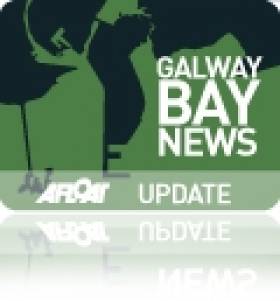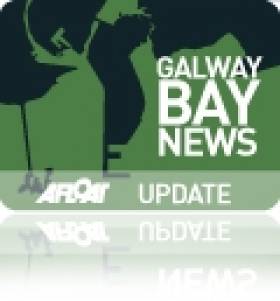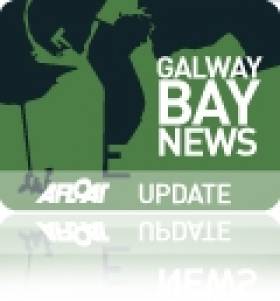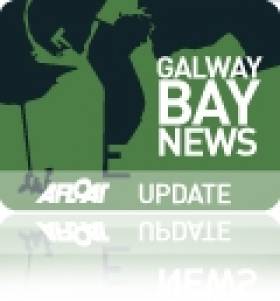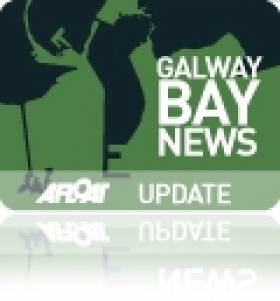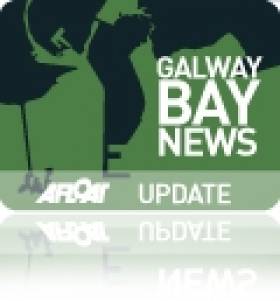Displaying items by tag: Ironman 70.3
Galway Ironman Triathlon Cancelled Due To Funding Issues
#GalwayBay - Funding issues have resulted in the cancellation of what would have been the third annual Ironman 70.3 triathlon in Galway later this year, as the Galway City Tribune reports.
Organisers have expressed their sorrow at having to call a halt to the event, which already had some 1,600 people registered to take part, due to what they claim is a lack of funding from Fáilte Ireland.
“I think it’s ironic that we have to turn people away when ‘The Gathering’ is on,” said co-organiser Eoin McCormack.
The most recent Galway Ironman 70.3, staged in August 2012, overcame local swimming ban concerns to see more than 2,000 athletes swim 1.9km along the Salthill Promenade before a 90km cycle through Connemara and a 21.1km run through the streets of Salthill and The Claddagh.
It's estimated that the inaugural event in 2011 was worth more than €10 million to the local economy.
The Galway City Tribune has more on the story HERE.
Galway Beach Gets Clean Bill of Health for Ironman Triathlon
#GALWAY BAY - Galway City Council lifted the swimming ban on Salthill at the weekend, clearing the way for the upcoming Ironman 70.3 triathlon in the City of the Tribes.
As previously reported on Afloat.ie, concerns had been raised about the Galway beach closure last week resulting from elevated levels of E.coli above the EU's mandatory safety theshold.
But subsequent testing showed that levels had returned to below the safe limit, and Galway Bay FM reports that a second test confirmed that E.coli presence was "well below" permitted values.
Despite the bathing ban on Grattan Beach, triathlon organisers were confident that the event would "not be impacted".
According to the Galway Advertiser, some 2,500 particpants are registered to compete in the Ironman 70.3 triathlon this Sunday 2 September.
The second annual race comprises a 1.9km swim along the Salthill Promenade, a 90km cycle through Connemara and a 21.1km run through the streets of Salthill and The Claddagh.
As many as 25,000 visitors are expected in what marks another tourism boost for Galway, following on the heels of the Volvo Ocean Race finale last month.
No E.coli Risk for Galway Ironman Triathlon Say Organisers
#GALWAY BAY - Organisers of the Ironman 70.3 triathlon in Galway next weekend have given assurances that no competitors are at risk from E.coli contamination - despite concerns over elevated levels of the bacteria in Galway Bay.
The Evening Herald reports that E.coli levels in the waters off Salthill were recently found to have exceeded the EU mandatory safety threshold - similar to that which saw seven beaches closed in Cork last week, as well as Rush South in Dublin over the August bank holiday weekend.
Subsequent testing showed that levels had dropped below the safe limit, and Galway City Council was yesterday expecting a second set of results which, if positive, would see the beach at Salthill reopened to bathing.
The swim portion of the Ironman triathlon on Sunday 2 September will take a route along the Salthill Promeade from Blackrock to Palmer's Rock, and organisers say they are happy that the event "will not be impacted" by the current concerns.
"We are at the far end of the bay. The event is still eight... days away and this won't affect us in the least," said organiser Eoin McCormack.
A number of Irish celebrities will be taking part in the second annual Ironman 70.3 Galway event.
Rosanna Davison, Kathryn Thimas, Keith Duffy, Ray D'Arcy and Gráinne and Síle Seoige will be among those tacking the gruelling course that includes a 1.9km swim, a 90km bike ride and a run through the Salthill and Claddagh areas of Galway City.
The Evening Herald has more on the story HERE.
Triathletes Cross the Line at First Galway Ironman
RTÉ presenters Kathryn Thomas and Gráinne Seoige were among the 2,000 competitors who crossed the finish line at the Ironman triathlon in Galway yesterday.
According to the Irish Independent, the duo took part in the relay competition in aid of Irish Autism Action.
Meanwhile, fellow celebrity and Boyzone star Keith Duffy took on the challenge of completing the entire 70.3-mile course, finishing with a time of 5 hours 40 minutes.
The first Ironman event to be held in Galway comprised a swim across Galway Bay, a 90km cycle across Connemara and a 21km run through the streets of the City of the Tribes.
However adverse conditions at the start of the race saw the swimming stage reduced from 1.9km to 1km for safety reasons.
Among the elite competitors, first home was Switzerland's Mike Aigroz, with a time of 3:50:12. Best among the Irish men was Cork's Owen Cummins at 4:01:26.
Britain's Lucy Gossage came first in the women's section at 4:02:09, while Irish national record holder Joyce Wolfe set a time of 5 hours 44 seconds.
Correction: The original version of this story had the distance of the swimming stage as reduced from 1.9km to 700m, but the official Ironman Galway website confirms the swim distance as 1km.
Thousands Descend on Galway for Ironman Triathlon
More than 2,000 athletes will take part in Galway's first ever Ironman Triathon this weekend.
The Ironman 70.3 event will comprise a 1.9km swim in Galway Bay, a 90km bike ride through Connemara and a 21.1km run through the streets of the City of the Tribes.
Galway Bay FM confirms that the action will begin tomorrow morning at 7am with the swim from Ladies Beach in Salthill.
But the festivities kick off today with an expo at Salthill Park, followed by a 'pasta party' for the triathletes at the Galway Bay Hotel this evening.
Two Months To Go Till Galway Ironman
There's less than two months to go till the inaugural Ironman triathlon in Galway.
As reported on Afloat.ie last year, the City of the Tribes was chosen to host Ireland's first ever Ironman 70.3 event on 4 September.
Thirty-five qualifiying slots at the Ironman 70.3 World Championship in Florida are up for grabs in the event, which comprises a 1.9km swim in Galway Bay, a 90km bike ride through Connemara and a 21.1km run through the city streets, finishing at Eyre Square.
Individual registrations are now closed for the race, but some slots are still available with charity teams. For details visit ironmanireland.com.


























